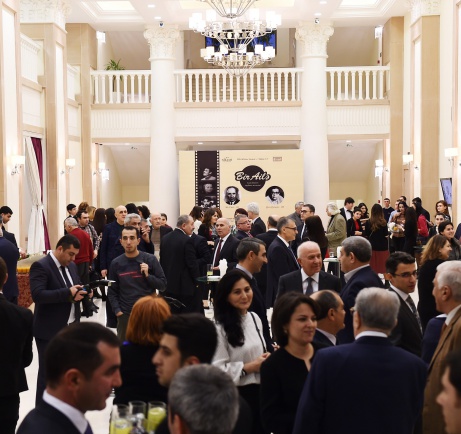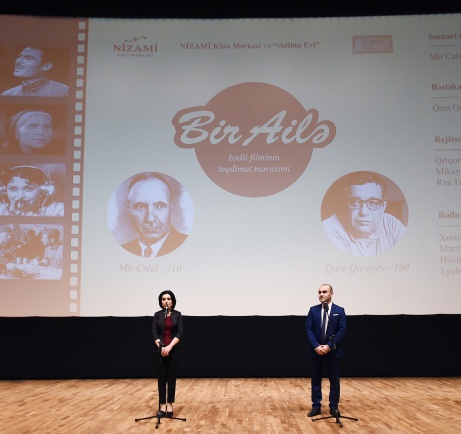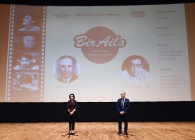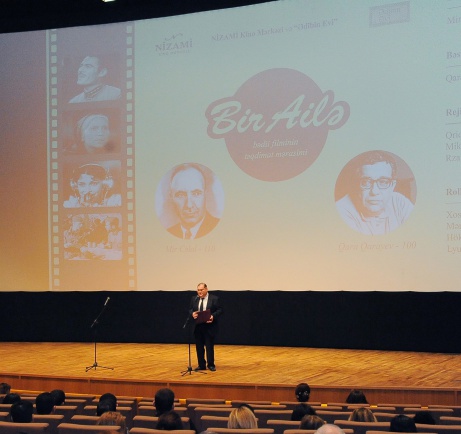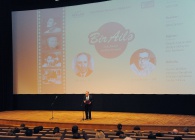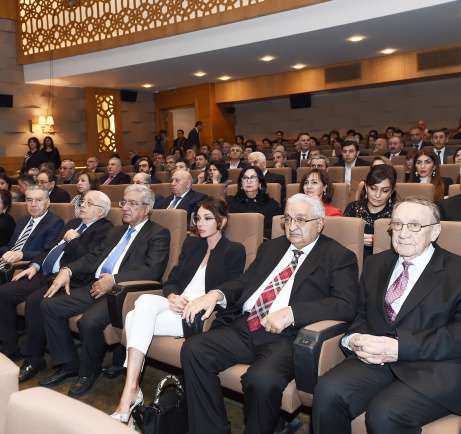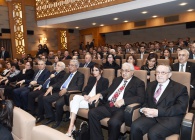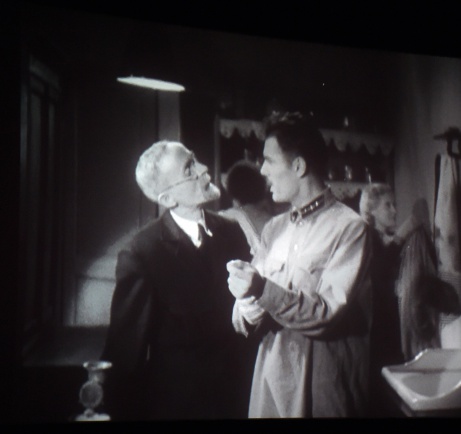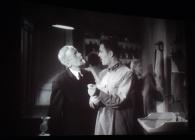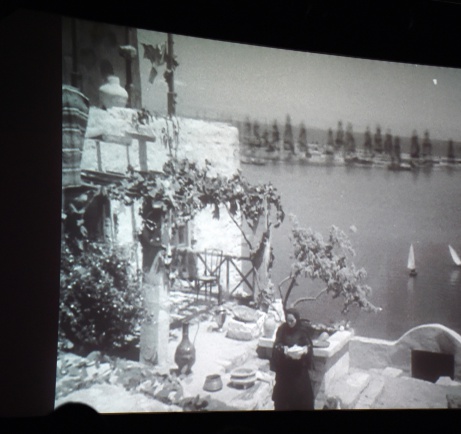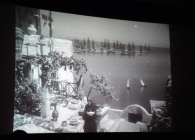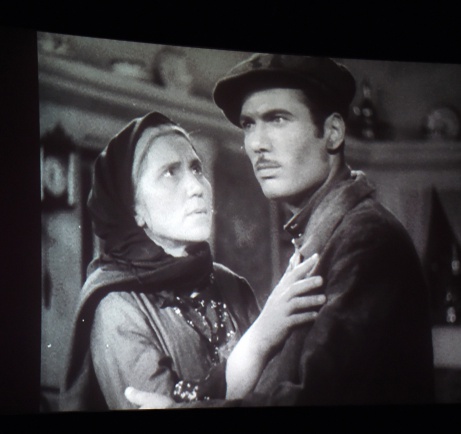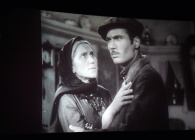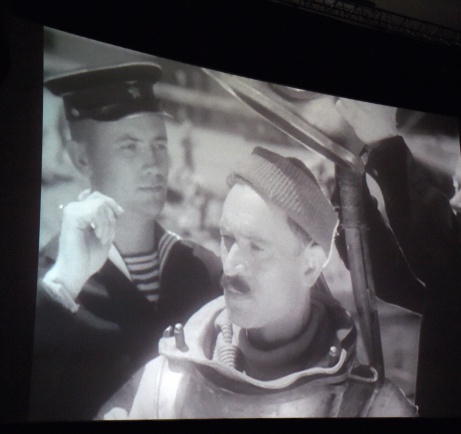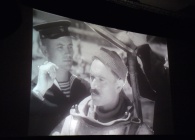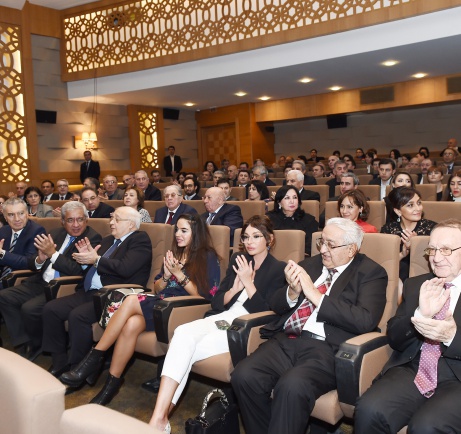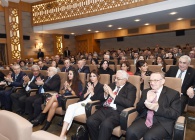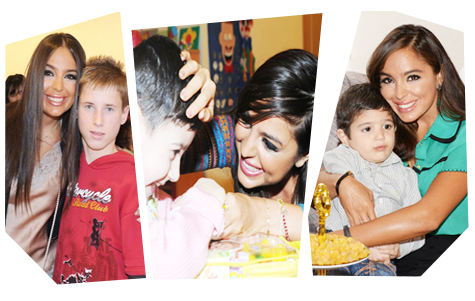
Family values are deep-rooted in Azerbaijan, and have been passed down from generation to generation since time immemorial. Care of youngsters, and respect for the elderly are cherished traditions in our country.

Presentation of the feature film “One Family”, jointly produced by Mir Jalal Pashayev and Gara Garayev, took place with joint organizational support from the Nizami Cinema Centre and “The Writer’s House”, to mark the 110th anniversary of Mir Jalal Pashayev and the 100th anniversary of Gara Garayev, March 1.
First Vice-president of the Republic of Azerbaijan Mehriban Aliyeva and Vice-president of the Heydar Aliyev Foundation Leyla Aliyeva attended the ceremony.
The history of the Azerbaijani cinematography is a chronicle of our people
Speaking before the show of the film, representative of the Writer’s House Elnur Imanbeyli talked about the works carried out by this cultural establishment, noting that a significant part of the Writer’s House‘s activity over the last year included collection of materials related to eminent writer and scholar Mir Jalal’s literary, and his scientific legacy. To this end, having worked in close collaboration with the National Archive Department and the National Library, the Writer’s House tried to collect Mir Jalal’s voice recordings in order to make them available for readers and researchers. Today’s event too is of importance from this standpoint, as the movie “One Family”, of which script writer is Mir Jalal, is presented to the public anew.
Executive Secretary of the Filmmakers Union of the Republic of Azerbaijan, Honoured Person of Art Jamil Gouliyev talked about how the film was returned to our country, and restored. Recalling the words of national leader Heydar Aliyev “The history of the Azerbaijani cinematography is a chronicle of our people” at a meeting with filmmakers in the 70s, Jamil Gouliyev characterised the film “One Family “as a work which has created and immortalized this chronicle. He said: “This year, we mark the 75th jubilee of the film “One Family”. We also celebrate this year the 110th anniversary of eminent writer, scholar and talented pedagogue Mir Jalal Pashayev, the 100th jubilee of great composer Gara Garayev, and the 120th anniversary of the Azerbaijani film. President of the Republic of Azerbaijan Ilham Aliyev has signed relevant resolutions in connection with holding these events.”
Recalling the words of eminent person of the French Cinematography Henri Langlois “Destinies of films are like those of humans. Time leaves its trace on every film created. When approaching the film, it should be looked through the lens of time”, Jamil Gouliyev said the movie “One Family” is also of this type.
The film has been restored at the initiative of academician Nargiz Pashayeva in 2008. Brought from Russia with the help of the Ministry of Culture and Tourism of Azerbaijan, the film is currently preserved in the State Film Fund.
Shootings of the film were carried out at a very difficult time, during the years of the Second World War. Soviet film directors Grigori Alexandrov and Alexander Ivanov had come to Baku. Three films – documentary “Caspian seamen”, and feature films “One Family” and “Submarine T9” – were shot at the Baku Film Studio. Unfortunately, show of these films was banned, as in these films, courage and heroism of the people of Azerbaijan, and their matchless services towards gaining victory in the Great Patriotic War were praised. Of course those sitting in the Kremlin in Moscow did not like this. This is why they forbade the show of these films.
The main character of the film “One Family” is the people of Azerbaijan
Appraising thefilm as a very daring work of scene, Jamil Gouliyev said: “The film contains no slogan. The main character of the film is the people of Azerbaijan, and its selfless citizens. The film has very interesting woman characters. They reflect the patriotism and strength of the Azerbaijani woman. All the dramaturgic production and artistic picturing of the film have been carried out under Mir Jalal Pashayev’s leadership.”
It was brought to attention that in this film, film-symphonism was used first time in an Azerbaijani film. Here, the unity of music and picture amazes the audience.
“Art is immortal. Restoration and show of this film - a success of the Azerbaijani cinematography - testifies to the immortality of art” – said Jamil Gouliyev.
Then, demonstration of the film took place.
Made in 1943 by the Baku Film Studio, this film talks about the role of the Azerbaijani oil in the victory over the fascism in the Second World War, and the patriotism of our people. The film’s script writer is Mir Jalal Pashayev, composer Gara Garayev, directors Rza Tahmasib, Mikayil Mammadov and Grigori Alexandrov. Khosrov Malikov, Marziyya Davudova, Lyubov Orlova, Hokuma Gurbanova, Mirza Babayev etc. played parts in the film.
The following words are written in a document found in soviet archives as to why the show of the film was banned: “The Great Patriotic War and the role of the Communist Party have not been sufficiently covered in the film “One Family” ... The reason is obvious: In the script, Mir Jalal Pashayev showed that all the burden of the war was on the common people’s shoulder. He talked about the hospitality and selflessness of the Azerbaijani people, who shared their bread with representatives of various nations evacuated to Baku. However, there was no mention of party activists’ talks and speeches about moral values... The root cause of the ban was, on the other hand, the colonialist and jealous treatment of Azerbaijan. And this was why Baku was not honoured with the title of a Hero City...
The film consists of three short stories linked with each other by a single plotline. The plot of the film has been built around the love of Najaf - an Azerbaijani tankman in the battle-front, who fell in love, during his one-day holiday, with Russian girl Katya. Najaf’s fellow soldier gave him his home address in the neighbouring city, where Najaf knew nobody. And Najaf mistook the address and knocked on the door of a different family. Although the family understood that he mistook the address, they welcomed him anyway. Intimate connection was formed between Najaf and Katya, the family’s daughter, in the course of a single day. The part of Katya is played by Lyubov Orlova, while Najaf is played by Khosrov Malikov.
Unknown masterpiece
Lyubov Orlova, one of the Soviet film stars, recalled: “Baku was full of refugees. Germans were advancing towards the Caucasus, having occupied the Crimea and Rostov. And we were shooting the film day and night, not leaving the Baku Film Studio.”
Film critic Aydin Kazymzadeh mentioned such an interesting fact in his book “The Azerbaijani Filmmakers” in connection with the film: “Explosion of a tank had to be filmed in one of the episodes during the shooting. A tank was brought from a military unit onto the shooting area, at the request of the film director and Orlova. The tank was supposed to be returned to the military unit after the shooting was over. Explosion had to be fabricated, and four cameras were placed in various corners of the scene to film the process. However, actually the tank was exploded. An alarm was given and military men arrived from the neighbouring military unit. The shooting area was surrounded in no time. Three out of the four cameras did not work during the explosion, as cameramen experienced shock from the explosion and failed to turn the cameras on. Only cameraman Koretski kept his head and continued filming. Thus the tank to be returned to the front was destroyed...”
While sharing his views of the film with correspondents, well-known film critic Ayaz Salayev said: The film “One Family” is an unknown masterpiece. This is the first film in the Azerbaijani cinematography where an environment of independence is sensed, which has been made possible based on Mir Jalal Pashayev’s script. The film “One Family” is a film taking about the matchless role of the worthy sons of Azerbaijan in the Second World War. Emergence of this film is very important today.”

